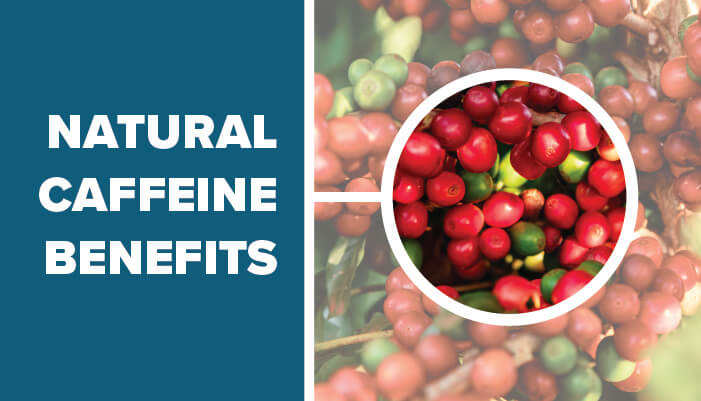Natural vs. Synthetic Caffeine
Naturally occurring in more than 60 plants, caffeine can be found in everything from food and beverages to pharmaceutical products. It is naturally found in kola nuts, guarana berries, coffee beans, cacao beans and tea leaves or can also be created synthetically in a lab. However, not all caffeine is created equal.
While synthetic and naturally occurring caffeine are chemically the same, they are used differently in product formulations and can vary slightly in their effects on the human body. There are several key differences between synthetic and natural caffeine, namely the duration of positive results from caffeine intake. In research recently published in 2020 in the peer-reviewed journal Nutrients, a team of researchers from Clarkson University found that natural caffeine has a longer-lasting and more consistent effect on mood and mental cognition than synthetic caffeine.
In a clinical trial on the effects of caffeine on cognitive performance, mood and alertness, participants were deprived of sleep for 64.5 hours. They received either caffeine or a placebo and were given a series of tests. It is no surprise that caffeine improved performance when compared to the placebo group. Both synthetic and natural caffeine produce these effects on the human body, but natural caffeine’s effects could last longer.
Caffeine works by blocking adenosine receptors. It wasn’t until the 1980s that research was conducted around caffeine’s blockade of adenosine receptors. Caffeine stimulates the cardiovascular system and the central nervous system, with positive and negative effects. The metabolism of caffeine primarily happens in the liver, instigated by hepatic microsomal enzyme systems. In healthy humans, caffeine does not alter absorption or metabolism.
Too much caffeine can lead to abuse, dependence, and, in extreme cases, deadly caffeine intoxication; however, caffeine also has scientifically proven benefits. Caffeine causes people to stay awake and alert. There is research around regular caffeine intake and a lower risk of developing Alzheimer’s and other neurodegenerative diseases. Additionally, caffeine can positively impact people with Parkinson’s disease by preventing loss of dopaminergic neurons and motor symptoms.
If you’re looking for all-natural caffeine to bolster your product formulations, Market Acceleration Group is ready and willing to partner with you. Don’t hesitate to reach out to our team of experts at info@barentzma.com to request a free sample.
Learn more about natural caffeine through these resources:
